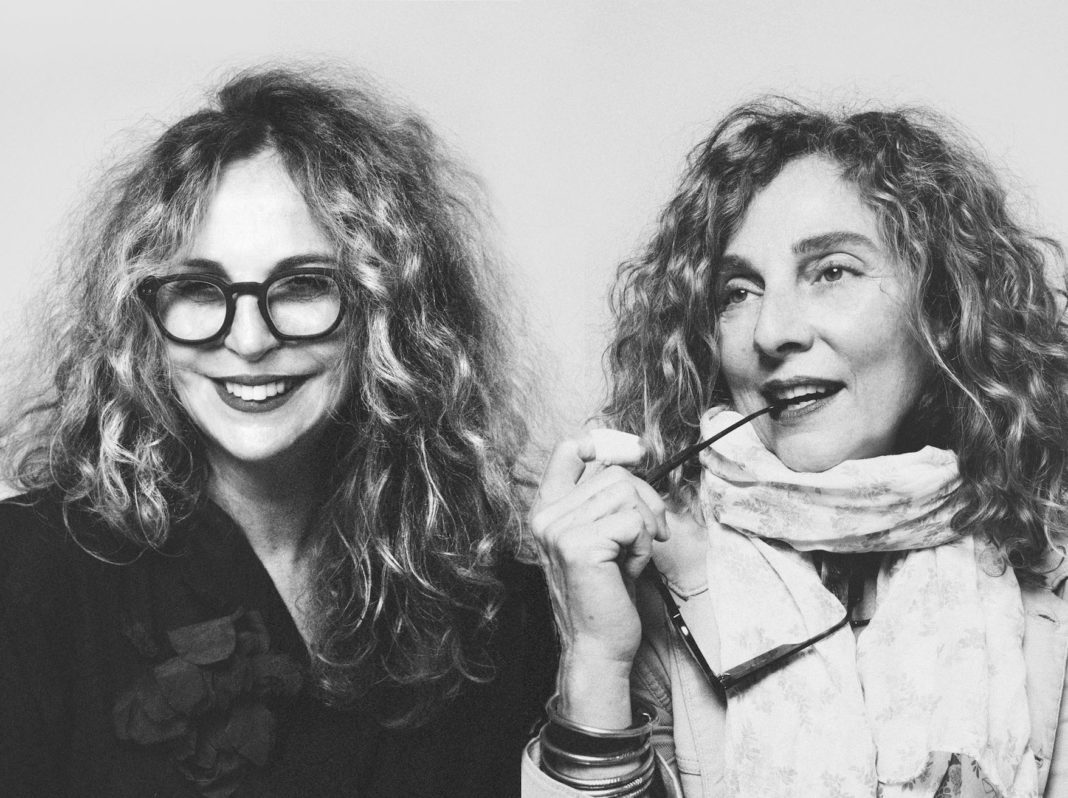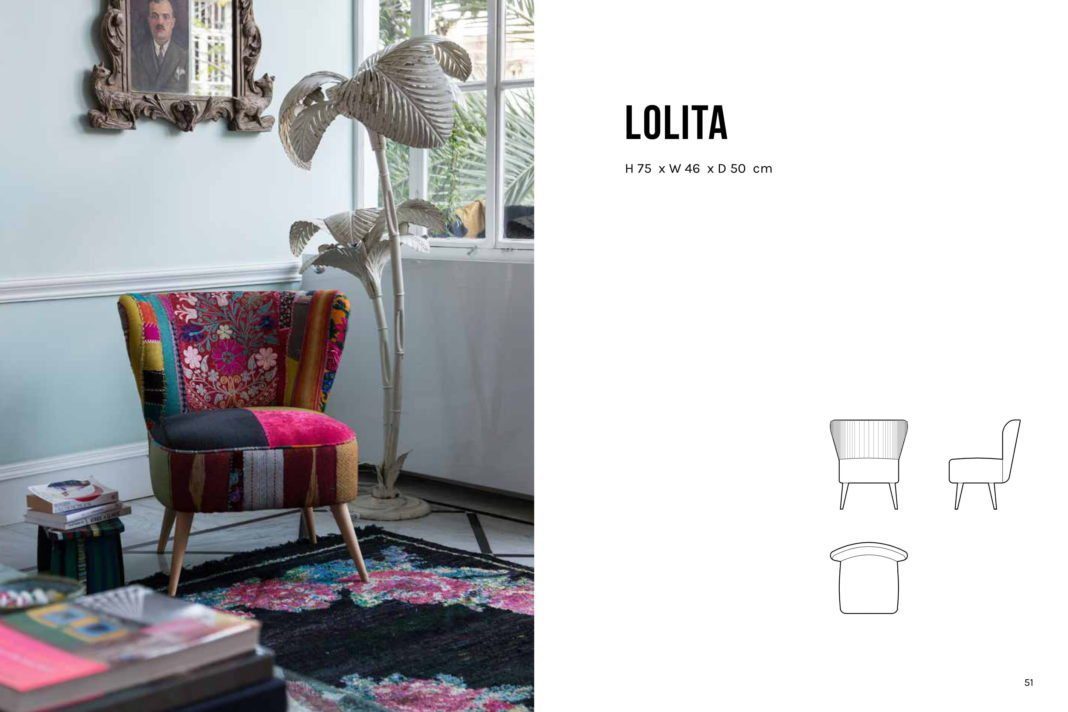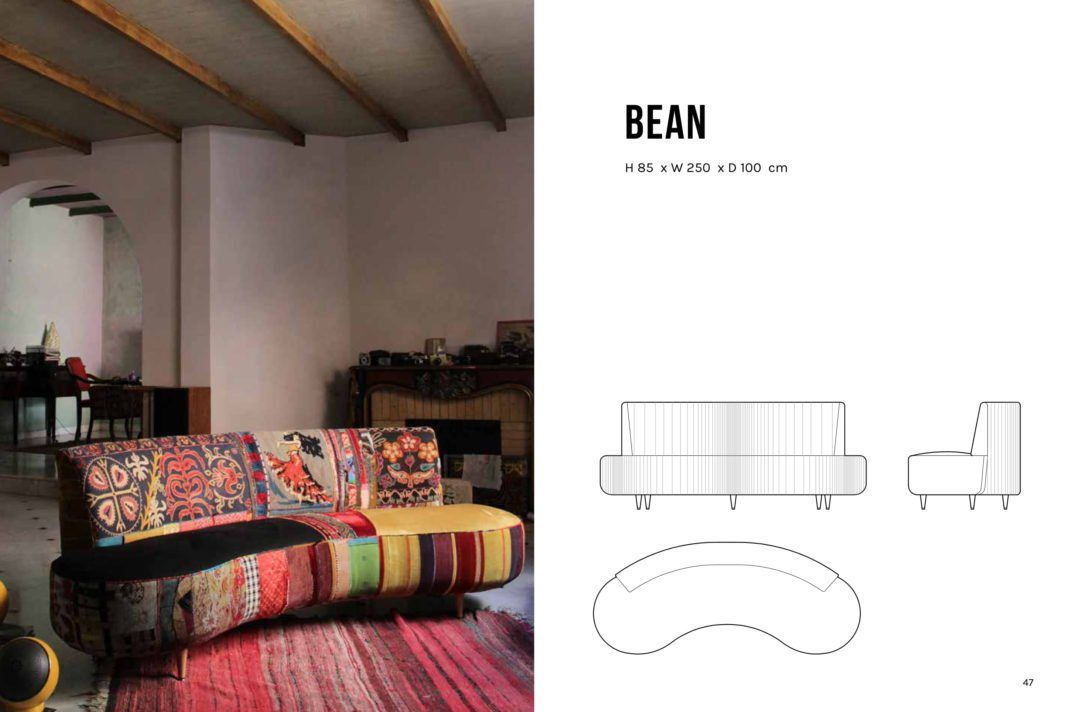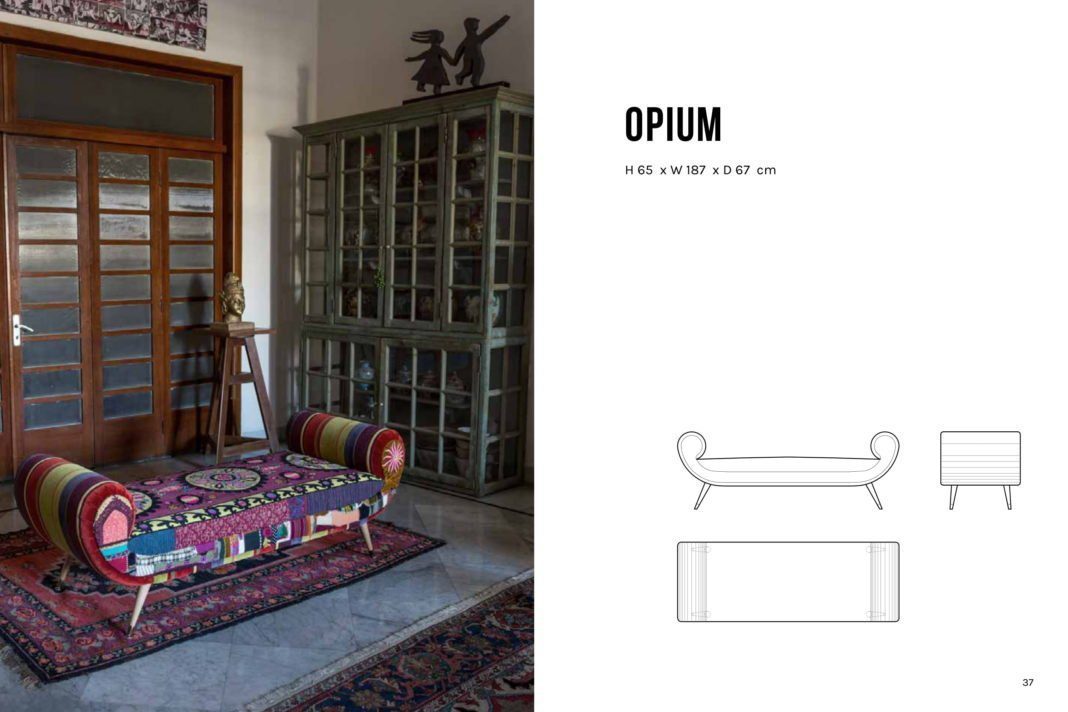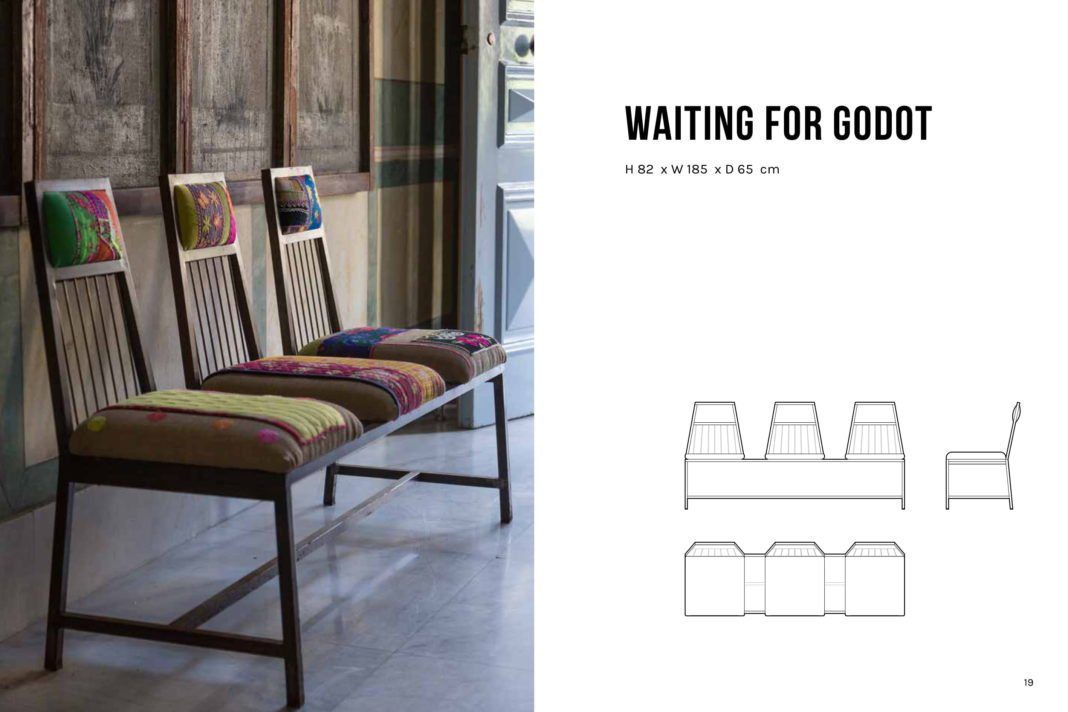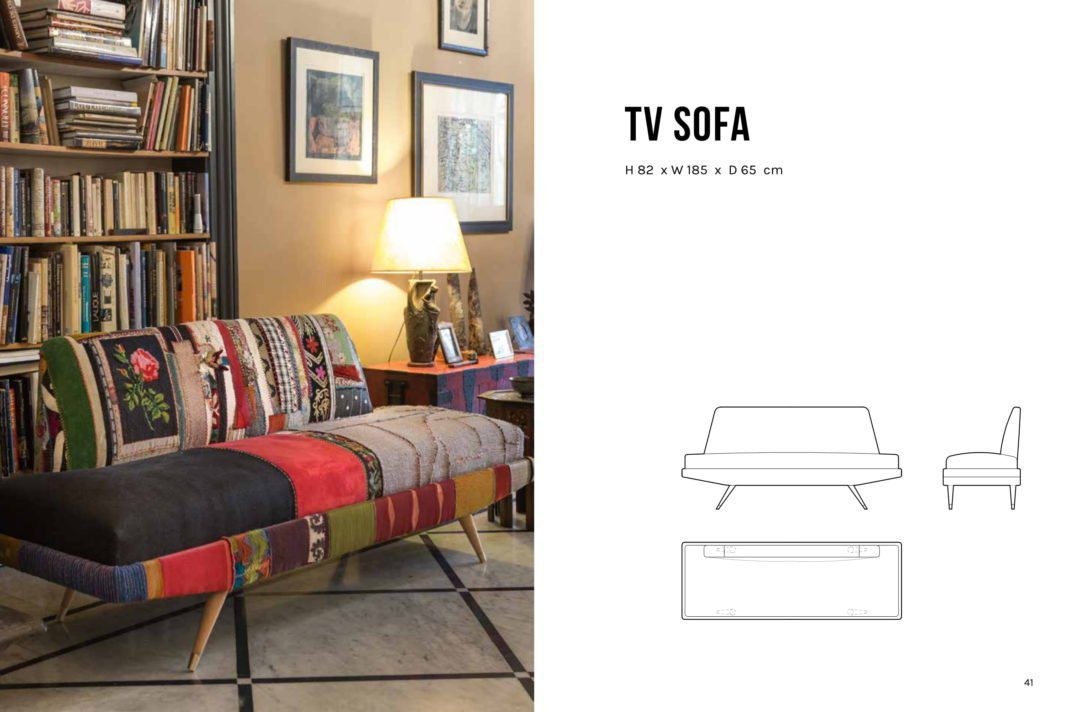We are back in our column ‘The monthly interview’; last month my first excellent guest, Sass Brown, suggested I interview Bokja Design, the Lebanese brand of interior design, fabrics, accessories and fashion design that has the particular and captivating characteristic of using new and recycled materials for its creations but, above all, makes embroidery, traditional fabrics and techniques a way to tell stories. Stories of travels, stories of family traditions, stories of countries, stories of the city itself, Beirut, where Bokja has the studio, a real creative hub where converge myriads of inspirations, local and international.

It was a real surprise for me to discover this brand that has given me proof of how many facets the sustainable fashion has; Bokja is in fact the set of many aspects of ethical fashion ranging from recycling to upcycling, from slow design to handmade, with the added value of multiculturalism that is expressed in colors, textures, shapes of objects created. And it is, moreover, a brand founded by two beautiful women that you can see portrayed on the cover, Huda Baroudi and Maria Hibri. Huda answered to my questions by emphasizing repeatedly the pleasure of working in a diverse team but united by mutual friendship and esteem for each one’s creative and manual skills.
First of all, thanks Huda for being my guest. I have to admit that before Sass Brown told me about you, I did not know Bokja Design; I must say that I was immediately impressed by the use you make of materials, colors, shapes. Can you tell me where this explosive and captivating mix come from?
My partner, Maria Hibri and I were introduced through a mutual friend because of our passion for cultural textiles and unique second-hand furniture pieces. Quite serendipitously we ended up working together, and after the success of our first collection, Bokja came to be.
I know that many of your products are made of recycled materials. Can you explain where they come from and what techniques do you use? Craftsmanship is another of the characteristics that underlie your work; do you mainly resort to local traditions or even to other countries?
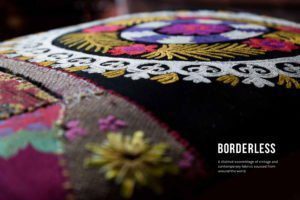

At Bokja, we are an explorative bunch. Through trade and travel, we gather patterns, forms and textiles, integrating these into our processes. Pieces are selected based on an emotional attraction to the piece. We collect fragments of time and place and reposition them in unusual arrangements; juxtaposing disparate objects and surfaces to one another is something we love doing. In our collection process, we gather both reclaimed and new materials, depending on the project.
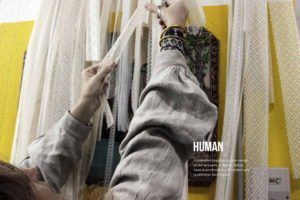

Our atelier is composed of a group of very talented craftsmen and women from the region whom we lead for the creation of Bokja objects. Bokja’s artisans come from countries as varied as Iraq, Syria, Kurdistan, Egypt and of course Lebanon, each bringing a unique set of traditional textile skills used for the creation of unique pieces. Our team has grown through an already existing network of embroiders; a friend brings another, consequently equating to the team we have today.
Your studio is based out of Beirut and also your production; what kind of relationship do you have with your city, what kind of relationship have you established?


As I said before we take our inspiration from our surroundings. Operating out of Beirut, the city resembles an assemblage Bokja surface, where the old exists amongst the new and local traditions compete with foreign influences. The richness one finds in the city allows for a beautiful clustering of unique skills and materials, coming from several parts of the world.
Since the blog is about eco-clothing and accessories, I would like you to talk about the various collaborations that I know you have with different brands for the realization, for example, of scarves, pajamas, outerwear, etc.


Courtesy of Bokja Design
Bokja seeks to expand its horizons through collaborations with exciting and relevant agencies and individuals. This will allow us to strengthen our textile knowledge base while pleasantly surprising us with new opportunities. Collaboration is everything. There is a need to further a culture of collaboration and convergence between people of different fields and designers themselves. In many of our latest collaborations our intention has been more geared toward celebrating the unique artisanal skills of our textile laboratory.
A curiosity Huda: what’s the meaning of ‘Bokja’?


Bokja is a word of Turkish origin meaning bundle or the piece of fabric that is used to wrap one’s belongings. A familiar tradition, a typical Bokja always bears the treatment ofhand-embroidery from different members of the family. The Bokja Design workshop maintains the same essence of storytelling through textiles, while pioneering to preserve the local cultural tradition of a textile identity in a contemporary voice.
Very meaningful name! Well Huda, we are at the end of this interview and since this column is conceived in a way in which the interviewee indicates the next guest, who will be? And why?
I nominate Sarah Hermes, founder of ‘Creative Space Beirut’, a free school for fashion design offering quality design education to talented youth who lack the resources to pursue an education at increasingly expensive institutions. The innovative initiative aims to promote equal opportunity into the creative sector and make the design world accessible to those with vision, flair, and the driving impulse to create.”
Excellent idea Huda, because I think that sustainability also means equal opportunities, not only among workers in the sector but also among those who aspire to a creative role! Thank you Huda and congratulations for your beautiful creations that bring in themselves the atmosphere of the whole world.
So at the next monthly interview with Sarah Hermez of ‘Creative Space Beirut’!
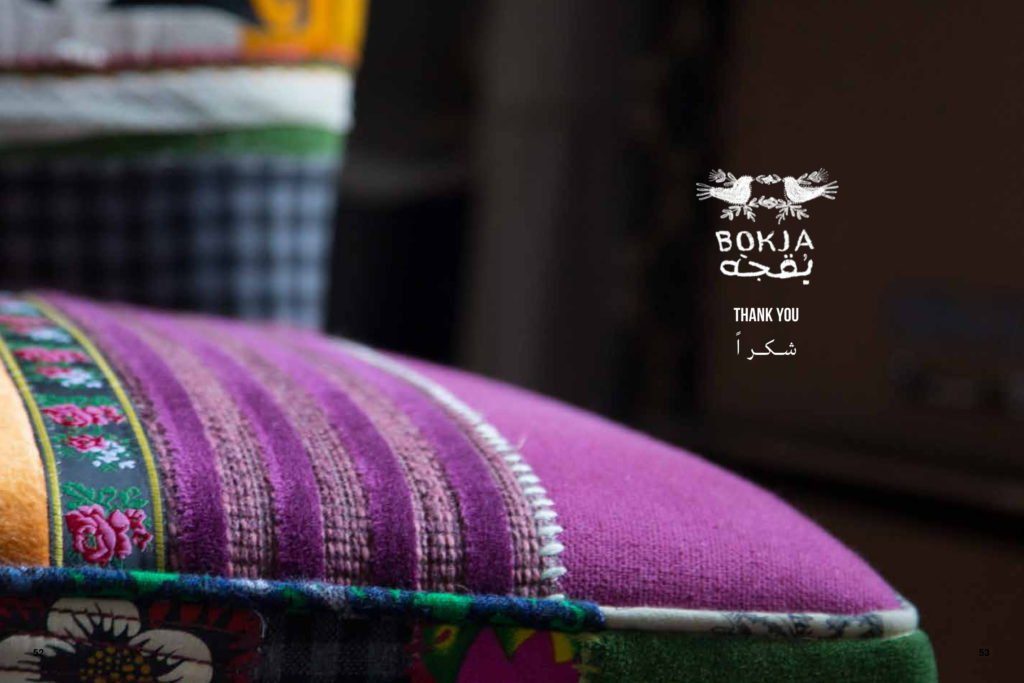



![Mono[PA6] by Freitag, a prova di economia circolare](https://eco-a-porter.com/wp-content/uploads/2024/05/freitag_monopa6_hero_master_16zu9_fin_01.2_0-218x150.jpg)







